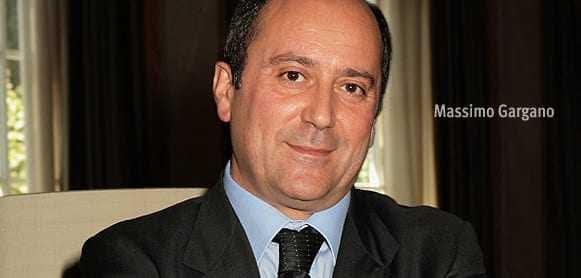
On November 22 Coldiretti, one of Italy’s main agricultural organizations, issued a press release headed, “Investigation finds mold in four out of ten olive oil bottles on sale.”
The statement was released to promote the GeniusOlei project, a joint initiative between Coldiretti and Unaprol, the largest consortium of Italian olive oil producers, to increase knowledge in Italy’s olive oil market and excellence in the sector.
“It should also be noted,” the press release went on to say, “that according to a survey by Coldiretti, four out of five bottles of extra virgin olive oil on sale in Italy contain mixtures of different origins.” Although European Commission (EC) regulations require the origin to be stated on the label, in most cases these details were obscure, the release said. “Consumers should do their shopping with a magnifying glass,” it advised.
These and other stark findings from the survey, though not exactly new, provoked headlines not only in Italy but internationally. ‘Four out of five’ bottles of Italian olive oil debased,’ wrote The Telegraph.
Italian authorities are investigating and importers and consumers of ‘Made in Italy’ olive oil are concerned.
China’s top quality watchdog has asked the Italian Embassy to respond to reports of improperly labeled olive oil, reports China Daily. And one Olive Oil Times reader summed up the confusion and wariness felt by many consumers, asking, “How will I know my extra virgin olive oil is pure and from Italy?”
Olive Oil Times asked Unaprol president Massimo Gargano to respond.
What would you say to consumers who feel they can no longer trust ‘Made in Italy’ olive oil?
Massimo Gargano: In Italy we have the strength and courage to denounce these abuses and these frauds. We do this because we want to protect the image of our ‘Made in Italy’ and maintain a good relationship with consumers around the world who believe that are buying Madein Italy and instead buy a scam. If there is an ongoing investigation evidently there is a law or rule that has not been abided with.
Consumers around the world can be confident that after this investigation there will be more clarity for their purchases. Consumers can choose to buy the real 100% Italian extra virgin olive oil because the market will be cleaner.
With regards to this in Italy the system of agricultural producers Coldiretti-Unaprol have created the conditions to concentrate, and to make recognizable on the shelves of retail outlets the oil coming from Italian Agricultural Chains, FAI, signed by Italian farmers.
What sort of measures are needed to address misleading labeling and fraud?
In this sector we need more transparency and more courage on the part of institutions. We do not need new laws, it would be sufficient to improve and properly enforce the existing ones. The correct application of European Commission (EC) rules on labeling throughout Europe, for example, would already be an achievement.
What should the E.C. do?
The Commission should change its regulation on olive oil alkyl esters before the next olive harvest. It should reduce the parameters to a maximum of 20 or 30mg per kilogram of oil, instead of the current 75mg, which in reality is often up to 150mg in olive oil on sale to the public.
This would be an important step forward in terms of transparency and would put many bad oils off the market. These oils can be classified as extra virgin from the chemical point of view, but actually, the deodorized oil becomes extra virgin merely by decree, because an EU regulation has madeit possible to accept more permissive parameters.
What should the countries that export olive oil to Italy do?
This problem should not be tackled by the countries which export olive oil to Italy as we are part of the single European market and it is not feasible to block imports; goods can circulate freely but everybody must respect the rules, especially those related to providing appropriate information to consumers.
Is the problem one of misleading the public about the origin of the olive oil or about its quality, or both?
There is an ongoing investigation and we have to wait for its completion to find out who exactly are the perpetrators of this fraud. The data were not given by the producers but by the Italian Customs agency.
The problem is not only the origin but also the quality of the product. Europe must understand that the regulation on alkyl esters (the chemical compounds which develop during the processing of low-quality olive oils) must be changed to increase the role of tasting panels. Their opinions should be considered more important and compelling than chemical analysis.
As long as it is possible to promote a flawed oil as an extra virgin oil, we will continue to have this kind of problems. If there is clarity and transparency, the market will grow, otherwise chaos will reign. At the moment it is not the best who win but the most shrewd.








